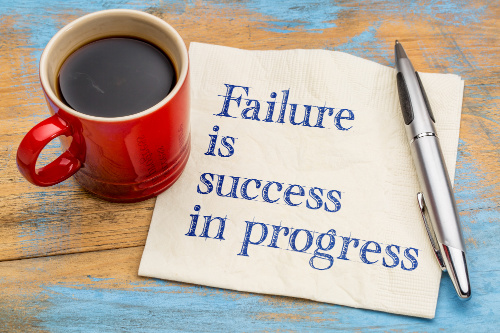 With the Super Bowl right around the corner, one thing is certain: both teams will try hard, but one team will win and one team will lose. In fact, Tom Brady, who has been in more Super Bowls than any other player, won seven times but lost three times. Recently, he made headlines by telling his own children to fail in life, so they can learn how to be resilient. And, yesterday, he announced his retirement after one of the best careers in NFL history.
With the Super Bowl right around the corner, one thing is certain: both teams will try hard, but one team will win and one team will lose. In fact, Tom Brady, who has been in more Super Bowls than any other player, won seven times but lost three times. Recently, he made headlines by telling his own children to fail in life, so they can learn how to be resilient. And, yesterday, he announced his retirement after one of the best careers in NFL history.
As witnesses to Tom Brady’s extraordinary achievements, we learned that if you keep a steadfast focus on your mission, learn from your mistakes and course-correct when needed, you never really fail.
Failure is a tough thing to bring up in the social sector. It is our F-word. We don’t talk about it or learn from it. I never realized how strange this was until I went to business school, where failure was considered almost a badge of honor. I learned there were venture capitalist firms that wouldn’t consider entrepreneurs’ ideas unless they had a track record of failure. Why? Because they knew that an entrepreneur with past failures had grit and knew how to learn from their mistakes. In my opinion, this fear of failure is holding the social sector back from greater success. Failures ultimately shape future successes. So, what is the secret to achieving this mindset?
First, we must acknowledge the problem. And, part of the problem is the word itself and what it means when we fail. With high stakes in the social space, it is hard to admit when we have let down our clients, organizations and communities. That is why I love efforts to make failure more mainstream in the social space. One national example is the recent Be Fearless Hub (which is now also a book), launched by the Case Foundation to “highlight the powerful, fearless stories of people who are making big bets and letting urgency conquer fear.” They are asking changemakers across the globe to share their stories around their Be Fearless principles. A smaller but nonetheless effective example of embracing failure was espoused by one of my favorite local fearless leaders, who was famous for asking grantees, “What is your fabulous failure?” Using “fabulous” before the word, “failure,” made it easier to swallow.
My own fabulous failure was when I led a team on childhood obesity at the American Heart Association. We had to move quickly, and because of that mistakes were inevitable. I found it was hard for my team to come to me with these mistakes when it was still possible to fix them. So, I changed the mindset. Instead of calling them mistakes or failures – which are clearly loaded words – we decided to call them “skips in the CD.” For those who remember CDs, skips happened all the time, and you never knew the reason. So, when individuals came to me and said this, we instantly course-corrected without playing the blame game. Instead of focusing on beating ourselves up for making a mistake, we learned from it and fixed it. As they say in the corporate world, we learned how to “fail early and cheaply.”
Second, we need to acknowledge that failure has a real purpose as a driver of innovation and impact. Failure should be an option for the social sector. I often tell my students, “If you are not failing, then you are not taking enough risks.” This goes for nonprofit organizations and for-profit ventures alike – we must all see failure as an opportunity to grow.
Third, we need to share our failures liberally to learn from them and then transform them. They are the building blocks of future collective success.
Finally, we need to start a culture shift in the social space to get comfortable with failure and understand that failure is often just the first step toward insight, impact and continuous improvement. Here are some quick tips on how to start this in your organization:
- Start with yourself: Talk openly about your mistakes and what you learned. Be open to feedback – inside and outside your organization – so making mistakes can be normalized as a necessary part of taking risks.
- Model the behavior: Encourage an environment where people can admit mistakes early and often and pivot as needed without playing the blame game.
- Embed in culture: Look at your values to ensure you are encouraging employees to share new ideas and alternative viewpoints.
- Reward the right behaviors: Start an award, such as The Great Pivot, to champion risk-taking and reward course corrections.
We would love to hear your opinion about failure and how you or your organization has embraced it as a norm. In my experience, if we take heed, learn and pivot, success is ours for the taking – and sharing. If you don’t believe me, believe Tom Brady’s own words: “You don’t always win. You can, however, learn from that failure, pick yourself up with great enthusiasm and place yourself in the arena again.”
